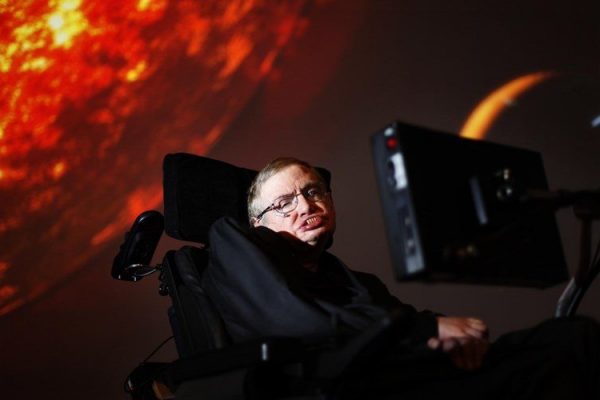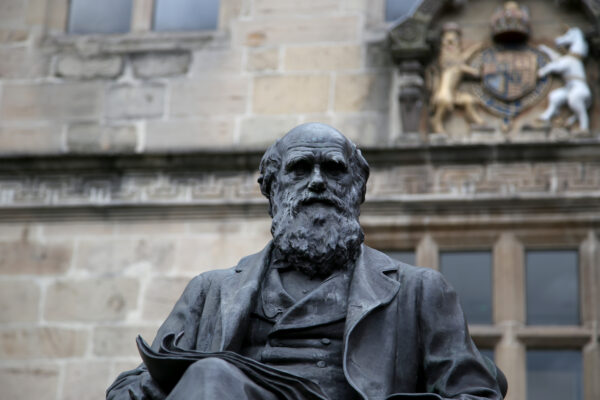Do not suppress your confusion for temporary peace.
Do not suppress your confusion for temporary peace.
“We can prove God.” I had replied to my agnostic colleague. But I wasn’t sure anymore. I joined the interfaith club as a first-year medical student to better understand the religious needs of my patients. At one of the meetings, we discussed the role of questioning faith and discovering other religions. I shared my recent study of the Bible and how it strengthened my belief in Islamic monotheism.
My agnostic colleague had been raised in a Catholic family but could no longer accept Trinity. He had searched for truth, even in Islam, but came to no convincing argument for God. I, being raised in a Muslim family, had always valued intellect. I knew God’s existence had rational proof and I expressed that to him. But the next morning, I was no longer sure of that proof.
For the first time, I was questioning God’s existence. I was living the questions that lead many to abandon religion. I was terrified. I did not want to lose faith. Faith had given me a holding ground, a compass to live by. Without it, I would be lost in abyss. But I could not hold on to a faith that was not true, when God was not true. So, like anyone else, I started my search with a Google search: “proofs for God.” I watched YouTube videos to understand the Big Bang Theory, the Multiverse Theory, and remaining arguments against God.
I agreed with the anti-gods that miraculous coincidences of our daily lives were not proof of a higher being. But I also didn’t know what was. Every day, my mind rode a merry-go-round of arguments, never reaching a conclusion, becoming nauseated by the vertigo and leaving the ride in a frenzy. My nights were equally restless, with my heart sinking in the abyss of tears. I saw no rescue.
Several months passed until I attended The Conference of Ali hosted by Universal Muslim American Association (UMAA). They conducted a question and answer session one afternoon that was staffed by Sheikh Rizwan Arastu. I had previously walked up to him with my brother, roaming around the book-stall, and asked him “Why did God create us?” He gave the expected answer that God created us to worship Him (Quran 51:56). But he added that God is not in need of our worship so His motivation remains unknown.
I was amazed by his honesty and his ability to comprehend the essence of my question. He quickly gained my confidence. After the question and answer session, I told him my state of affairs and asked him for guidance. He encouraged me to enroll in his online class called Islam 101 that was focused at understanding God and religion in a rational way. I registered for the class and embarked on my flight to visit Karbala and Najaf.
My time in Iraq was a typhoon of emotions. Some days, I felt a deep connection with the higher being. Other days, I wasn’t sure why I was there. I wasn’t sure if Imam Ali and Imam Hussein were worthy of my reverence. But my twenty years of love for them did not allow me to leave them. I held the silver case of Imam Ali’s shrine, the Door to the City of Knowledge, gazing at his grave with longing, asking him to carry me to his God. I peeked inside Imam Hussein’s place of martyrdom, it’s walls painted in his blood and the tears of his mother. I remembered his words “What has he obtained who lost You, Oh God? And What has he lost who found You?”
I asked him to show me his God who he was so certain of, who he gave his life for. I spent my return flight reading the book “Principles of Faith” by Ayatullah Wahid Khurasani. The book narrated the story of Imam Ali when a Bedouin, during the battle of Jamal, asked him about God’s unity. Imam Ali explained that God’s unity does not mean that we can count Allah as one. God is immaterial, without physical boundaries to be counted. Rather, it means that He is indivisible for He is not substance and is alone in His kind, with none like Him. Of Course, this was a leap in my trajectory of exploration because God’s unity is meaningless if He does not exist. But Imam Ali’s words gave me the confidence that a rational answer to my questions existed.
With second year of medical school, I started my online course with Sheikh Rizwan. We explored the importance of knowing God rationally, and contemplated on the explanations for His existence, intelligence, and self-sufficiency. We then questioned the authenticity of the Quran and prophethood before using the Book to learn more about God. Every lecture and discussion propelled me further out of the abyss, towards God’s light shining on the ocean’s surface. These rational proofs have become my strong hold as I continue to journey towards my Creator because the quest of knowing Him and submitting to Him is infinite.
Through this experience, I have also realized that if our faith is based on emotions alone, then eventually, we will come to a desert of confusion, lost in the mirage of many falsehoods. Our compass then to the truth will be your intellect and rational proof alone will quench our thirst to know God. If we do not land in that desert, then it may be a blessing. But if we reach there, and we’re honest in our search for the truth, then our reward will be the very knowledge of God, the Almighty, which no other blessing can surpass.
If I could go back in time, I would not undo the confusion I faced. I would not delete the questions from my mind. Those questions have allowed me to know God in a way that I would not exchange for any bit of certainty. That confusion has kindled in me a fire for God that will only be dampened by being in His presence. But I believe that I could not have escaped that darkness of confusion had I not longed for the shore. I could not have reached the shore had my limbs not restlessly motioned towards light. So, to the youth who may be facing the same questions that I did, I urge you to take ownership of your expedition.
Do not suppress your confusion for temporary peace but let it ignite in you a desire for truth. Embark the journey with an open mind, an open heart, surrounding yourself with books and scholars, letting your mind be your compass, and truth be your end goal. The journey will be difficult because no goodness comes without effort. So, call this journey a test if you may, but never consider it a mortal sin, for it is an opportunity to tap into the answers that lie within you but cannot be reached without asking the simple question “Does God exist?” God, if he exists, will open all truth to you.
by Yusra Shao





